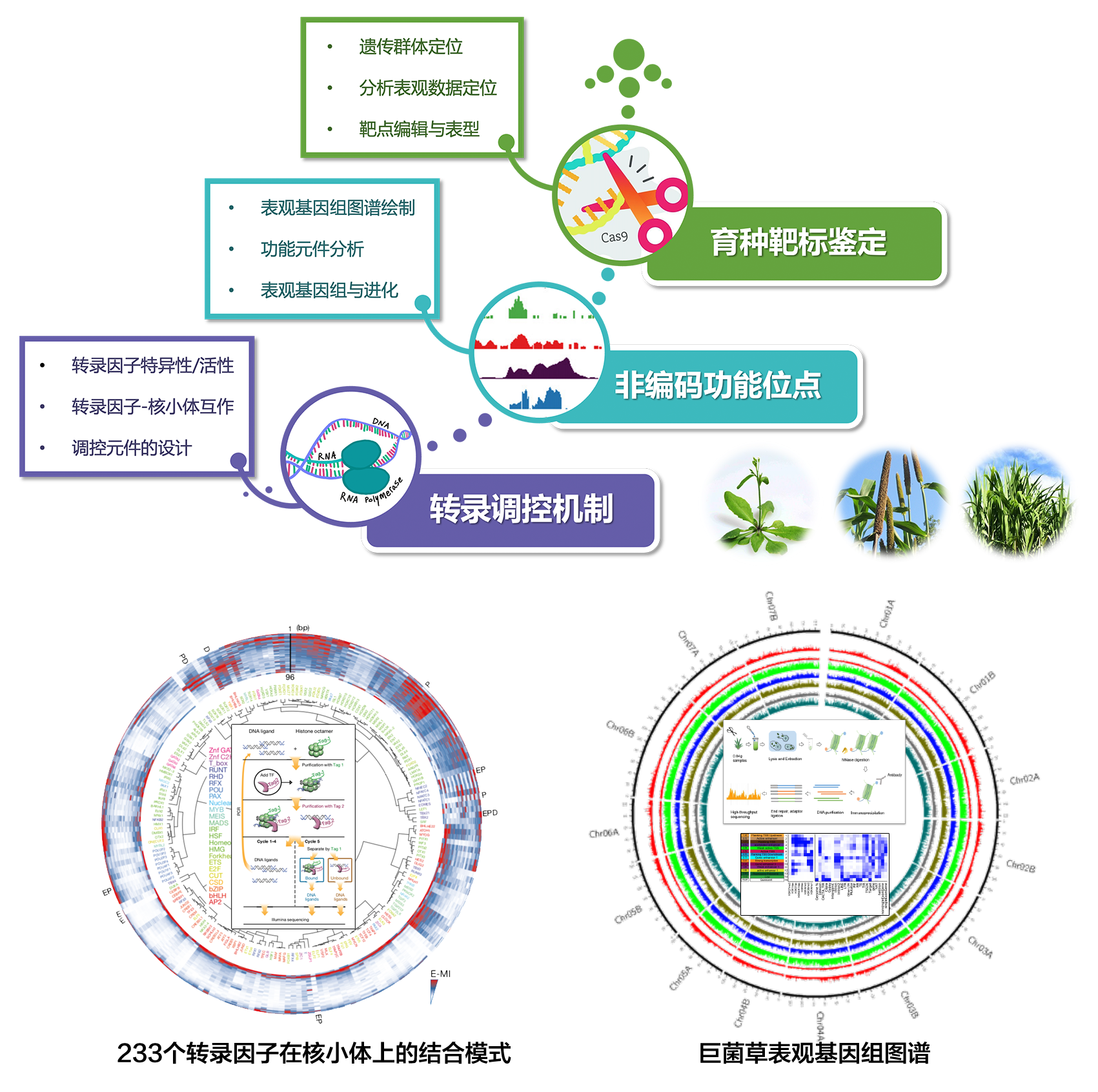Research Interests
Overview

TRANSCRIPTIONAL CONTROL
When plants respond to internal or external signals, large sets of genes are switched on and off with precise spatiotemporal programming. The coordinated switching is realized by transcription factors --- a category of proteins that recognize specific DNA codes and regulate the gene expressions nearby. In eukaryotes, DNA is packaged in nucleosomes. When bound, the nucleosomes prevent transcription by excluding the binding of transcription machinery to DNA. We are interested in how transcription factors overcome such barrier, to regulate local chromatin accessibility and activate expression of corresponding genes.
FUNCTIONAL NON-CODING GENOME
As the sites recognized by transcription factors reside in the regulatory noncoding genome, which remains largely underexplored for its functions. Our team also aims to unravel the functions of the noncoding genome.
JUNCAO EPIGENETICS & BREEDING
JUNCAO Technology was invented by Prof. Zhanxi Lin in Fujian Agriculture and Forestry University. JUNCAO technology has helped farmers in many developing countries to shake off poverty. The JUNCAO industry represents efficient use of solar energy, land, and water, and a comprehensive cycle utilization of the plants, fungus, and animals. It tightly links the economic, ecological, and social benefits together. We systematically illustrate the epigenetic maps for JUNCAO and study its transcription regulation, to find functional genomic sites for further improvement of the JUNCAO germplasm.
SEQUENCING-BASED TECHNOLOGIES
In the past decade, the emergence and development of sequencing-based technologies have generated data in an unprecedented scale, allowing scientists to study transcriptional control from a whole-genome perspective and at a systems level. Combining high-throughput experiments and data analysis, we also strive to develop novel sequencing-based technologies, to assist the epigenetic studies on transcriptional control.
